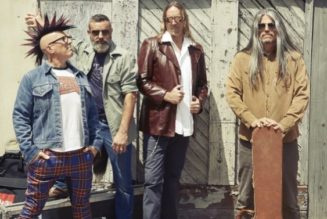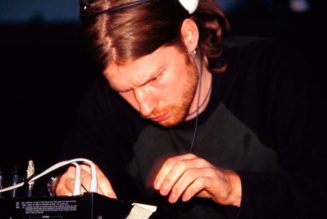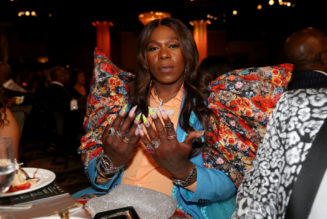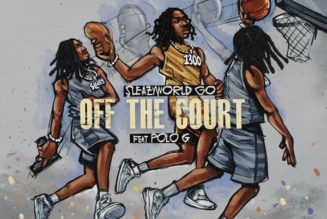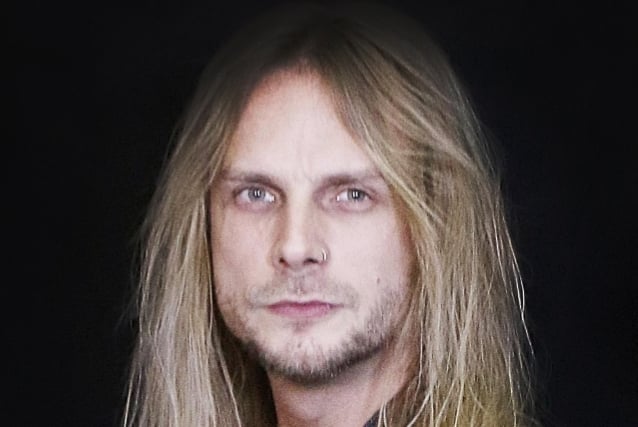
JUDAS PRIEST guitarist Richie Faulkner and his girlfriend Mariah Lynch, daughter of former DOKKEN guitarist George Lynch, welcomed their first child, a baby girl, on July 8.
George broke the news of his fifth grandchild’s arrival in an Instagram post earlier today (Friday, July 17). He posted an adorable photo of Richie bottle-feeding the baby, with Lynch shredding the axe in a chair only several feet away. “New baby time .big chubz>little chubz>micro chubz. the most precious perfect creature in the present universe entered our world July 8th xo”, George wrote.
Earlier this year, Lynch expressed his desire to play in PRIEST alongside Faulkner. Speaking at a Pitbull Audio guitar clinic in San Diego in January, Lynch said: “I still to this day love PRIEST. I wish they would call me up and hire me. Glenn Tipton, hello?”
For the past two and a half years, PRIEST has been touring with producer Andy Sneap in place of longtime guitarist Tipton, who retired from full-time activities with the band following a diagnosis of Parkinson’s disease.
Faulkner joined PRIEST in 2011 as the replacement for original guitarist K.K. Downing.
Richie was once the guitarist in the backing group for Lauren Harris, daughter of IRON MAIDEN bassist Steve Harris.
Two years ago, Faulkner spoke to Guitar World magazine’s “Speed Of Flight” about some of his main guitar influences and how you can use others’ guitar styles in your playing but still create your own unique sound.
“Everyone knows, I think, who my inspirations are, musically — it’s no secret,” Richie said. “Zakk Wylde‘s in there, Jimi Hendrix is in there, Dave Murray‘s in there. I mean, there’s tons of them. There’s Randy Rhoads, there’s Brian May… There’s tons of them. But there’s usually four or five guys that, in my case, made me think, ‘Okay, these are the ones that shaped the way I play today.’ So whenever I hear myself playing, I hear the Wylde in there, I hear the Hendrix in there. And, hopefully, something comes out of that. If you distill all that into one funnel, hopefully it comes out in another way. And it’s a great journey to take, to be honest with you, ’cause the older I get and the more I go through my career, the more I find myself trying to find my own distinctive voice.
“It used to be about the amount of notes you could play,” he continued. “If it was a Zakk Wylde thing, it was a fast thing; if it was a Hendrix thing, it was a fast, impressive thing; if it was a [Michael] Schenker thing, it was the same. But the secret of it, I think, the more I analyze it, is the space between the notes. There’s always a fingerprint that has got more time to shine through the longer the note is held, in my opinion.
“Michael Schenker from UFO is a classic example — the note spacing, the phrasing, the note choice, the technique is a masterclass in what I’m trying to tell you,” he said. “There’s space, there’s vibrato, there’s pick scrapes, there’s coming down from a note — there’s just a lot of space there, but it says something. It’s almost like if we were to have a conversation and I ran up to you and spat off a load of words a million miles an hour, it’s gonna go over your head, where if I said, ‘Well, this is what I’ve got to say, this is what I’m trying to say in the words that I’m trying to say, and this is what I’m gonna leave you with,’ it makes more of an impression. That’s what I always got from these players.”



